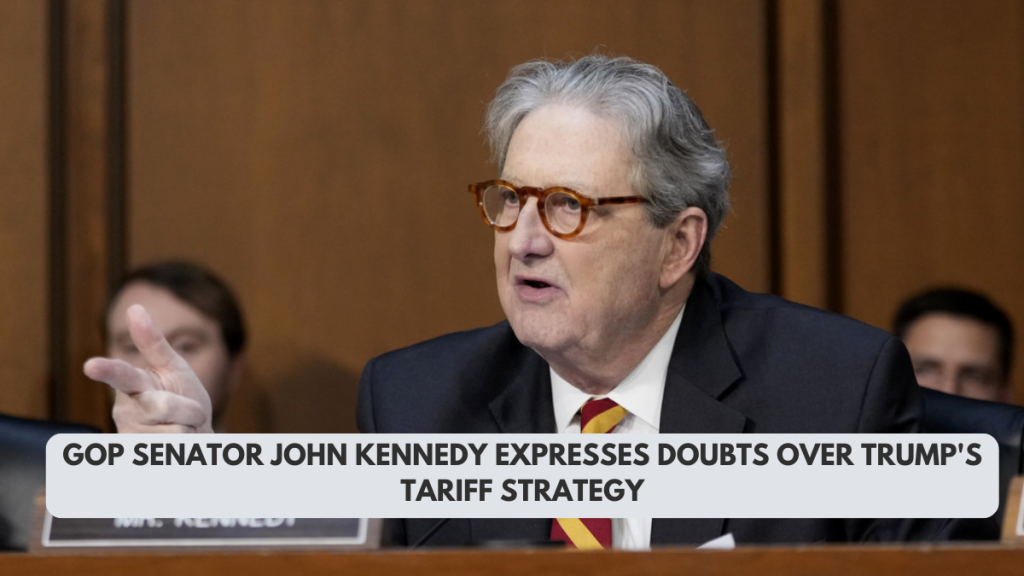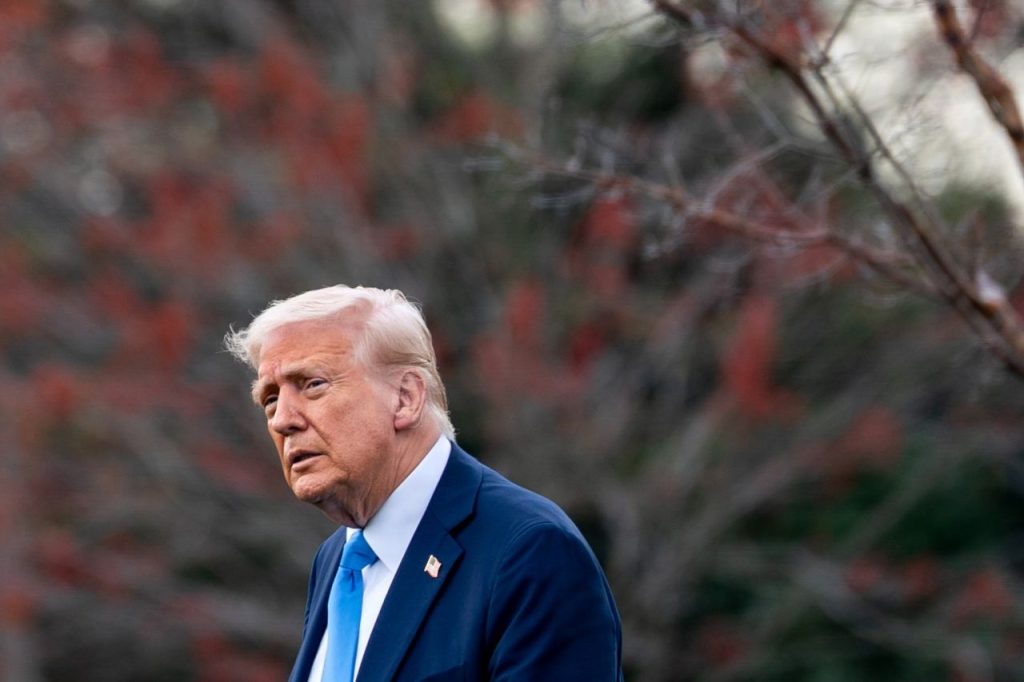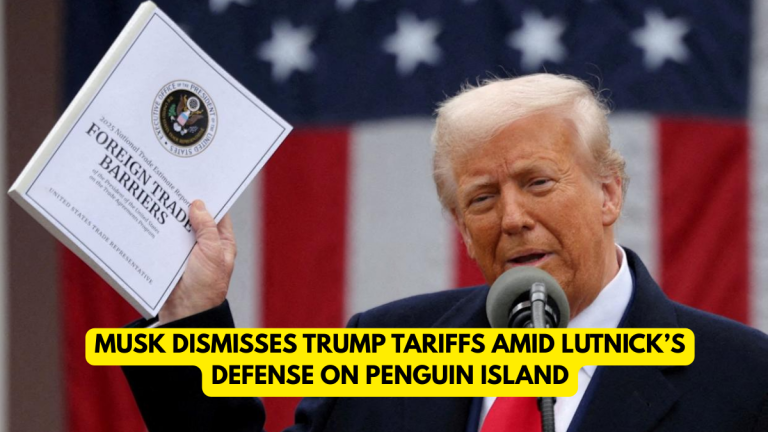
U.S. Senator John Kennedy (R-La.) issued a stark warning in response to former President Donald Trump’s newly announced sweeping tariffs, joking grimly, “In the long run, we’re all dead,” while expressing uncertainty about their economic consequences.
Kennedy’s comments highlight growing concern among both Republican and Democratic lawmakers after Trump declared April 2 as “Liberation Day,” unveiling a broad tariff policy that would impose a 10% baseline tariff on all imports into the United States, with steeper levies for certain countries.
“Nobody knows what the impact of these tariffs is going to be on the economy,” Kennedy said in an interview. “A little whiskey, under the right circumstances, can be refreshing — but too much whiskey, under the wrong circumstances, can make you drunk as a goat.”
Trump’s Tariff Shock
In his announcement, Trump portrayed the move as a necessary effort to restore economic independence and penalize nations that he claims have taken unfair advantage of the U.S. economy. The tariffs would apply across the board, including on consumer goods, industrial parts, electronics, and vehicles.
While details on the tariff enforcement mechanism remain sparse, the plan leverages emergency executive powers previously used during Trump’s first term under the Trade Expansion Act of 1962. Critics argue such actions bypass congressional oversight, sparking a broader debate on trade policy and executive authority.
For more information on presidential trade authority, visit the U.S. International Trade Administration (ITA) and Office of the United States Trade Representative (USTR).
A Divided GOP Response

The reaction among Republicans has been sharply divided.
Senator Mitch McConnell (R-Ky.), the Republican leader in the Senate, called the tariffs “bad policy,” warning they would likely increase costs for American families and businesses.
“Trade wars with our partners hurt working people most,” McConnell said in a statement. “We should be opening markets, not closing them.”
Only four Republican senators — McConnell, Rand Paul (Ky.), Lisa Murkowski (Alaska), and Susan Collins (Maine) — previously opposed Trump’s use of emergency powers to enforce a 25% tariff on Canadian imports. Senator Kennedy supported the original tariff measures but appears to be signaling caution in this round.
Other Republicans offered lukewarm support. Senator Ron Johnson (R-Wis.) said the approach was “high-risk,” but hoped it might yield long-term benefits in trade negotiations.
International Fallout
The announcement drew swift backlash from U.S. trading partners. Canada and Mexico imposed retaliatory tariffs, targeting U.S.-made vehicles and agricultural products, including dairy and pork.
The European Union and China have also hinted at possible countermeasures, raising fears of a full-blown trade war. Economists warn that such escalation could lead to global supply chain disruptions, increased inflation, and slower economic growth.
The International Monetary Fund (IMF) issued a statement cautioning against “aggressive unilateral tariffs,” saying they could undermine global financial stability and erode confidence in international trade agreements.
You can read the IMF’s trade policy statements at imf.org.
Impact on American Consumers
Economists estimate that Trump’s proposed tariffs could cost the average American household an additional $3,800 per year due to higher prices on imported goods. Inflation could climb above 4%, according to projections by Moody’s Analytics and other research groups.
Small businesses, especially those reliant on imported components, have raised concerns about surviving in a costlier trade environment.
“You can’t call this protectionism if it ends up crushing the consumer,” said Maria Thompson, a small electronics importer based in Ohio. “It’s just a tax hike by another name.”
Legislative Pushback: The Trade Review Act

In response to Trump’s actions, a bipartisan group of senators introduced the Trade Review Act, aimed at reasserting congressional control over tariff policy. The bill, led by Senator Chuck Grassley (R-Iowa) and Senator Maria Cantwell (D-Wash.), would limit the president’s ability to impose new tariffs unilaterally.
If passed, any new tariff introduced under executive powers would automatically expire within 60 days unless ratified by Congress. The goal, according to lawmakers, is to prevent “economic decimation by executive fiat.”
Details of the bill can be found through the Congressional Legislative Information System.
What’s Next?
With both domestic and international pressure mounting, analysts expect the White House and Congress to enter negotiations over how — and whether — to moderate Trump’s tariff plan.
The Department of Commerce has not yet released a detailed implementation timeline, and legal challenges may emerge if the tariffs disproportionately affect trade with specific nations. A potential Supreme Court battle over executive power in trade policy could follow if lawsuits are filed.
In the meantime, global markets have reacted negatively. The Dow Jones Industrial Average experienced its worst day in five years, shedding nearly 900 points in the wake of Trump’s announcement. Bond yields dropped, and investors sought safe-haven assets.
Conclusion
Senator Kennedy’s grim humor reflects a broader uncertainty in Washington: will Trump’s sweeping tariffs protect American industries or backfire by igniting a global trade war and hurting U.S. consumers?
The next few weeks will be crucial in determining whether the U.S. proceeds full-speed ahead with the plan or pulls back in response to mounting pressure from allies, industries, and lawmakers alike.



